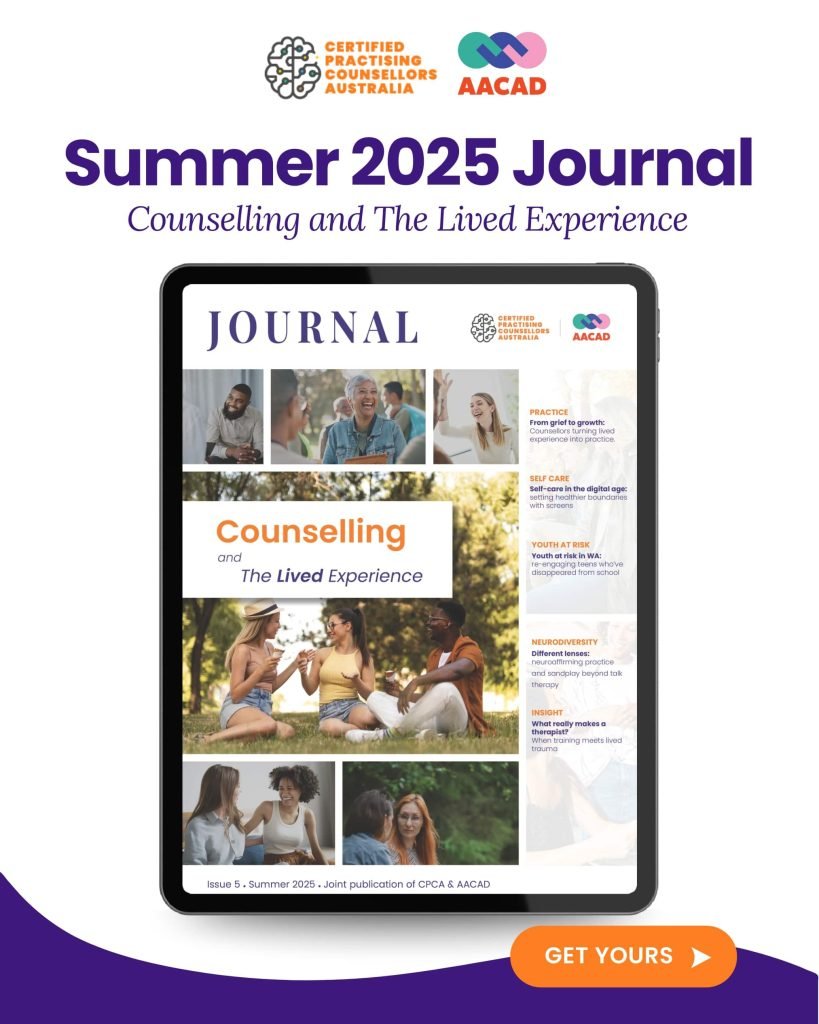Mid Year Economic Forecast (MYEFO)
The opinions expressed in this report card are the authors only. Contra views are welcome. Mark Cresswell President CPCA Mid-Year...
Read MoreCPCA & AACAD Journal Summer 2025: Counselling and the Lived Experience
Dear Members, We’re excited to announce that the Summer 2025 of the CPCA and AACAD Journal is now live! This...
Read MoreHow to Become a Counsellor in Australia: Qualifications, Costs & Career Paths
Counselling is one of the fastest-growing professions in Australia, with increasing demand across mental health, education, aged care, disability services,...
Read MoreWhat’s the Difference Between a Counsellor and a Psychologist in Australia?
If you’re considering seeking mental health support or a career in the field, you might be wondering: What’s the difference...
Read MoreCounselling in Australia: Heart Work vs Head Space – Finding Balance Between Feeling and Thinking
When we think of counselling in Australia, the common image is someone sitting across from a therapist, being guided through...
Read MoreHow to Set Up a Counselling Service in Australia: A Step-by-Step Guide
Starting a counselling service in Australia is a meaningful and rewarding way to make a positive impact in people’s lives....
Read More





